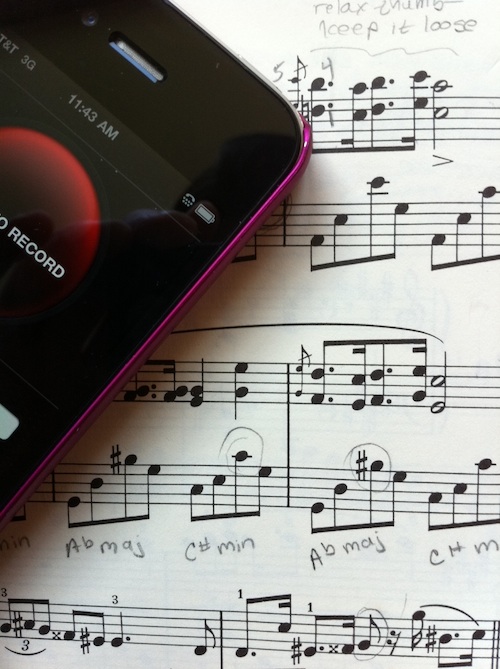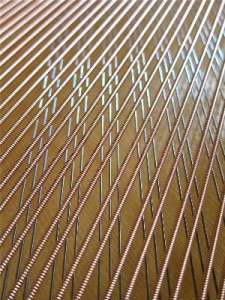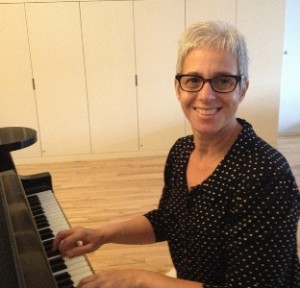Several years ago, my piano teacher, Stephen Wu, suggested in his low-key manner that I record myself when I practiced. I allowed a lot of time to elapse before I finally worked up the courage to follow his suggestion, despite his occasional, gentle reminders. I have to hand it to my piano teacher for his persistence. My only comfort is that I’m consistently a procrastinator, no doubt one of those characteristics from being a full-fledged member of the Adult Children of Alcoholics tribe. Or perhaps the reason for my procrastination was more simple: I was afraid of what I would hear.
I began recording while studying the Chopin Nocturne in C-sharp Minor. The opening measures to the Nocturne’s second section challenged me with a color change, lilting triplets, and gossamer chords. Despite extra practice on my part, these measures met with a lot of critique from Stephen. Out of ideas on how to fix the music, I downloaded iTalk onto my phone and pressed the big red Record button.
I felt nervous while I played, even though it was only my cell phone propped up on the music stand taking in my music. I listened to the recording with a mixture of excitement and misgivings. What was that glaring tempo change that I heard in the middle of the first phrase? Come to think of it, Stephen had pointed out that issue in my last two lessons. And why did those chords at the end, which I thought I was pulsing with a modicum of lightness, clang so loudly? This is Chopin, not Rachmaninoff, Stephen had joked.
Once I heard my own mistakes, they became much easier to fix. Now, I’m an ardent convert. I use the iTalk application by Griffin Technologies. The sound quality is very good, and it’s easy to label my recordings and sync them with my computer. But even if you’re a Luddite (I’m one in disguise, desperately trying to overcome my tendencies), you can grab an old tape recorder and press record. If your playing is anything like mine, chances are that even with the scratchy background, your mistakes will ring out with clarity.
Nowadays, when I begin to gain traction with a piece of classical piano music, hearing my own renditions helps me to catch sloppy mistakes before they ossify into bad habits. In the weeks leading up to an amateur concert or a student piano recital, I record and listen to my music quite intensely. In the case of recording your classical piano music, a twist on an old adage applies: hearing is believing.





0 Comments